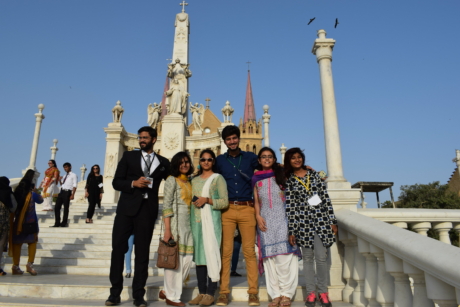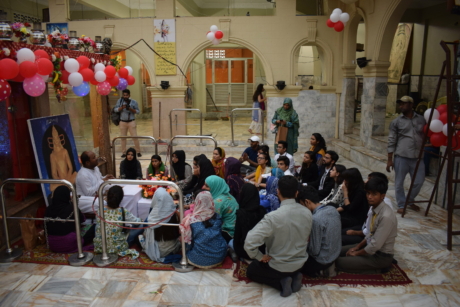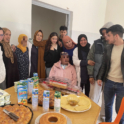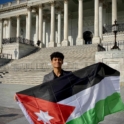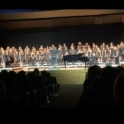Maryame has taken the lessons learned from her exchange year to make a difference in her community.
STORIES
Interfaith Dialogue is Needed! BUBW Comes to Pakistan!
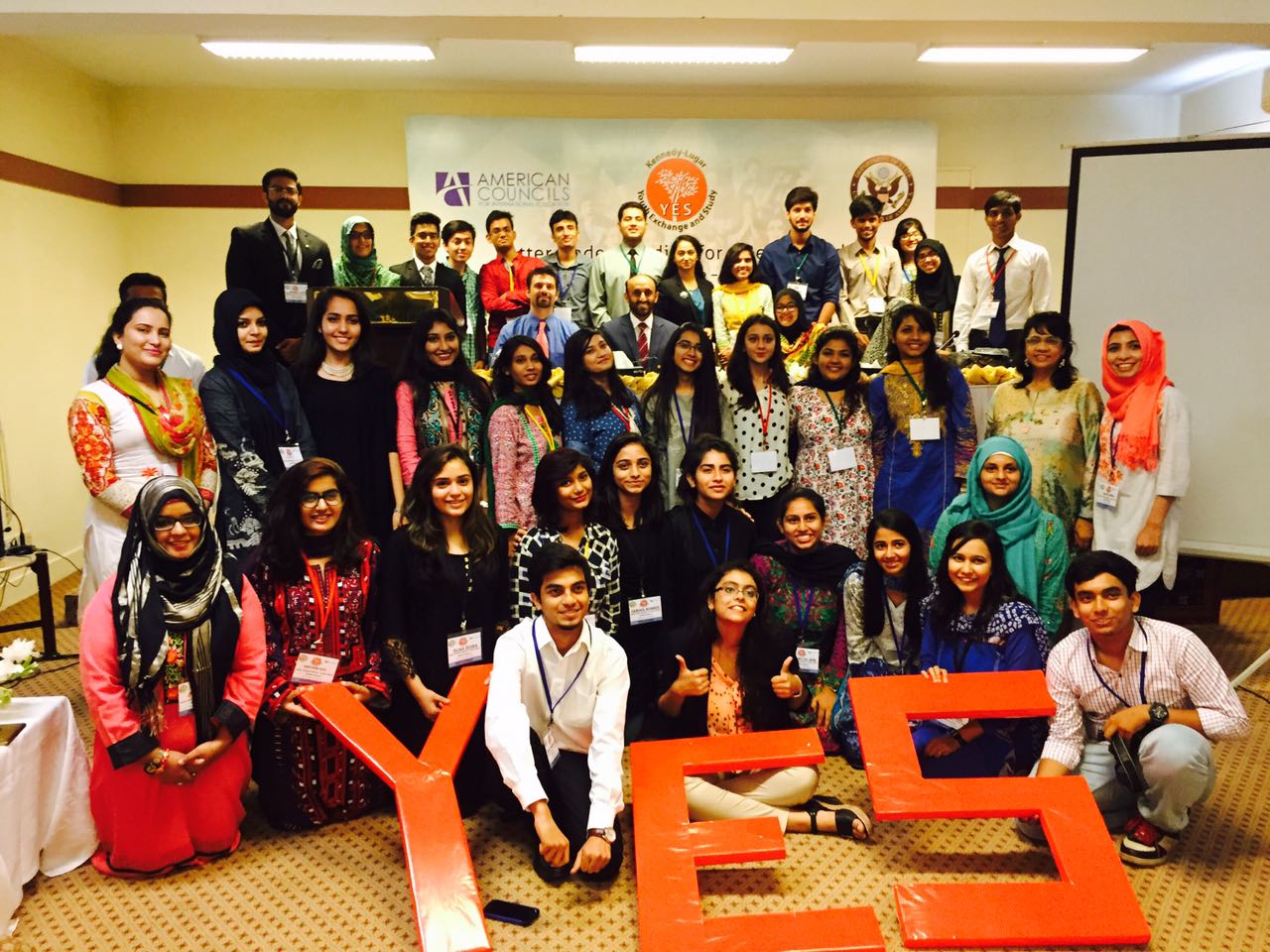
By Priya Parkash, YES 2014-2015, Pakistan, hosted by AFS in Camarillo, CA
"Religion is a candle inside a multi-colored lantern. Everyone looks through a particular color, but the candle is always there.” Mohammad Naguib, First President of Egypt
My name is Priya Parkash and it has been over a year since I returned to Pakistan after the successful completion of my YES year. Currently, I am an A Levels (high school) student in my city of Karachi, and I have always been passionate about public speaking, social change and empowerment. I am a strong believer in the words of Mahatma Gandhi, “Be the change that you wish to see in the world.” I want these words to have a meaningful impact in my practical life.
My YES year was an enlightening experience: it helped me grow emotionally, psychologically, and in every other way possible. There was always so much to learn and share! Whether it was volunteering at my host school, the public library, the local senior center, or being with my host family, all presented opportunities for growth, exploration, and for stepping out of my comfort zone. YES provided me the opportunity to be a goodwill ambassador of my country and to develop Pakistan’s reputation in the eyes of my host community as a great land of diversity and love. Near the end of my exchange year, quite a few friends and teachers expressed the desire to visit Pakistan. One friend even said, “Now, I know not to believe the media if they portray Pakistan in a negative light.”
One area of community service I wanted to work on in my home country is interfaith dialogue, which can be delicate to address in Pakistan. Pakistan is a predominantly Muslim country with only about four percent of the population being religious minorities. Most people usually do not talk about religious issues. Yet, unfortunately, there is an ongoing and sad history of Hindu-Muslim riots, inter-sectarian violence and other religiously-related conflicts plaguing our land. Religion is not a popular subject for discussion without tension and there is a strong need for dialogue that focuses on bridging the gap between different faiths and bringing Pakistanis to realize that our faiths have more similarities than differences. We are all part of a global village where there is an interconnectedness and interdependence amongst all living things.
I am lucky that I have had the opportunity to learn about other religions in my own country. I am a Hindu and yet I attended Catholic school all my life. I have always been exposed to diversity; celebrating Christmas with my Christian friends, the Eid festivals with my Muslim friends, and the Hindu celebrations such as Diwali with my own family. My parents have encouraged me to learn and grow in a multicultural society. Honestly, there have only been a few instances in my life when I felt that I was being discriminated against on the basis of my religion; however, not everyone has been in such a protected environment. I personally know people who have faced severe criticism because of their religions. There have been reports that Hindu girls have been kidnapped and forcibly converted. Intolerance has created a mob mentally, and riots in small towns and villages have become a norm. Because of this situation, since Pakistan's independence in 1947, the Hindu population in Pakistan has declined from 30% to a mere two percent today. There is a strong need of interfaith harmony if Pakistan is to preserve its religious diversity and end the tinderbox of violence.
A few months ago, two religious commemorations; the Hindu celebration of Holi and the Christian Easter holiday, were declared public holidays in the province of Sindh where Karachi is located. This decision was met with a good deal of criticism on national television and other forms of media. While there was some support for the decision, I could only see the negative reaction as a result of the widespread religious ignorance prevalent in our community. It convinced me that it was time to be brave and develop an experiential workshop on interfaith harmony similar to the one I attended in the U.S., the Better Understanding for a Better World (BUBW) conference. BUBW is sponsored by Civilizations Exchange and Cooperation Foundation (CECF) and led by Imam Mohamed Bashar Arafat, a pillar in the American Muslim community who has dedicated his work to interfaith dialogue. At that conference, I first realized that, while religion may be a sensitive issue, dialogue can be approached in a subtle manner, and that interfaith harmony is an achievable goal. The conference inspired and encouraged me to take initiative and become a change agent for this cause.
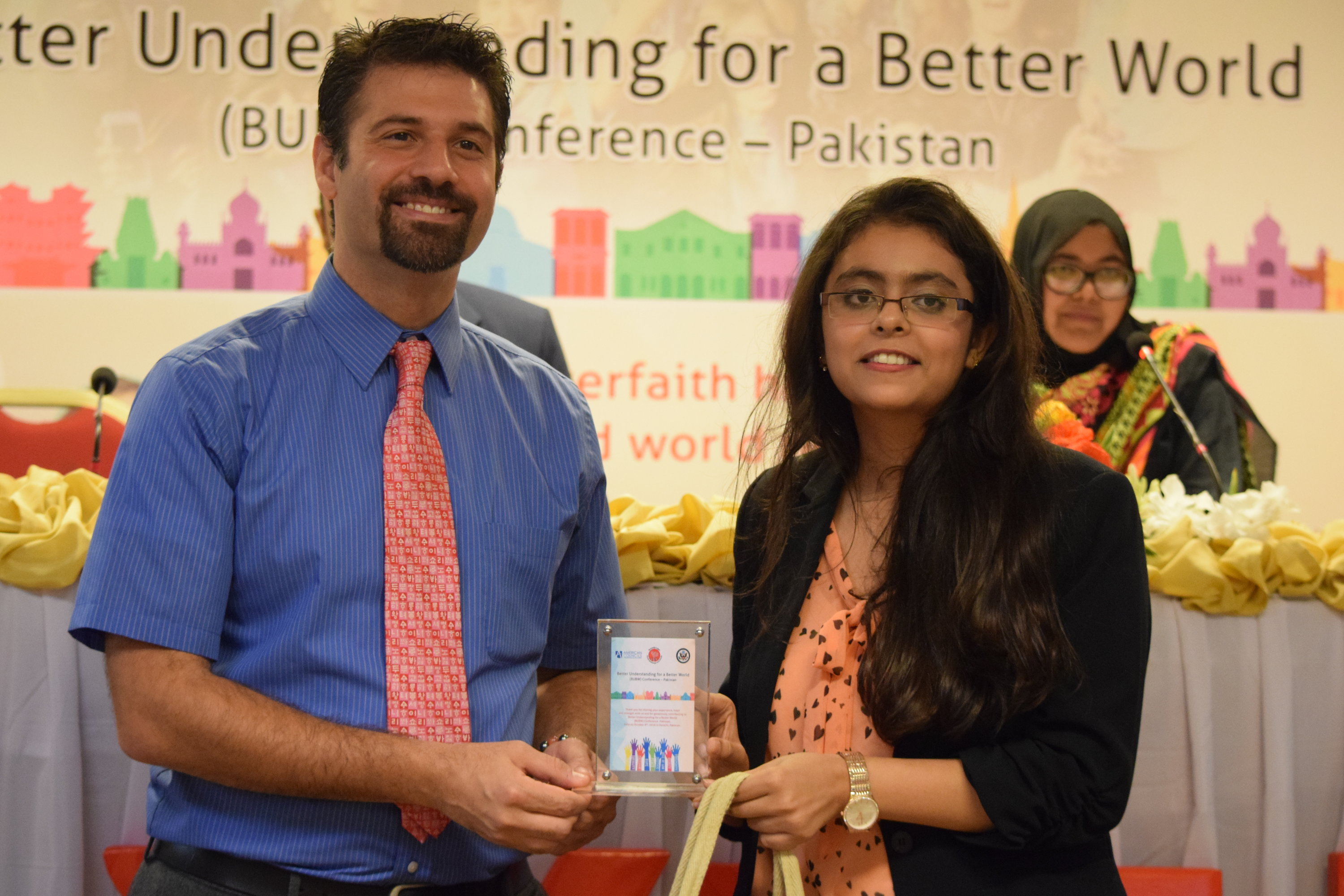
Cultural Affairs Officer Mr. A.D. Tranchina, from the U.S. Consulate General Karachi and Priya Parkash.
I wanted to initiate a similar project, BUBW Pakistan, to create the opportunity to interact and engage in dialogue to bridge the vast gulf between Muslims, Christians, Buddhists, Hindus and other faiths. The target participants were YES alumni, because although many of them did learn about religious diversity during their exchange year in the U.S., the majority did not have the inter-religious immersion experiences that I did through the BUBW. Through a number of conversations, I learned that a large number of YES alumni had never visited a Hindu temple, a synagogue, or even a church. They had not interacted with people belonging to these faiths, especially in the context of their own country.
On October 8, 2016, thirty-five YES alumni participants attended the Better Understanding for a Better World Conference – Pakistan, a YES grants-funded project, in Karachi, Pakistan. The conference aimed to promote interfaith harmony, inculcate a sense of appreciation of religious diversity and help the participants develop leadership skills in this age of the ‘global village.’ The conference utilized a training of trainers model, which included a panel discussion, leadership sessions, expert speakers, and visits to various houses of worship. We were honored to have knowledgeable expert speakers, including Dr. Abdul Muhaiman, Mr. Abbas Hussain and Dr. Amana Raquib. Two YES alumnae, Firasat Rizwana Siddiqui (YES 2005-2006, hosted by PIE in Charleston, WY), and Umme Kulsoom (YES 2003-2004, hosted by ASSE in Finsbury, MD), continued their mentorship of YES alumni by leading the ToT sessions.
The conference started off with the recitation of prayers according to the practice of three different faiths: Hinduism, Islam and Christianity. This was a learning experience for almost all the participants, and one YES alumna, Khushba Syed (2015-2016, hosted by PAX in Whitehall, WI) said, “Hearing three different prayers changed my perspective. I realized that while we may each have our own idea of God, we are still interconnected and one big universal family.” When all joined in to sing the national anthem of Pakistan, it was a poignant reminder that we all had our citizenship and love of country in common.
Our key note speaker was Mr. Abbas Hussain, a renowned Islamic scholar and director of the Teachers’ Development Centre in Karachi. Mr. Hussain spoke about interfaith harmony based on the work of the German-Jewish philosopher, Martin Buber, who developed a philosophy of dialogue based on a theory of relationships of ‘I-Thou’ versus “I-It”. The participants learned that Buber defines man as a being who faces an “other” and constructs a world from both the acts of distancing and relating the applicability to inter-religious relationships. Mr. Hussain vividly outlined the preconditions for meaningful interfaith dialogue, helping the participants analyze and reflect upon how they can face these hurdles and create the needed conditions in their communities.
Dr. Abdul Muhaiman, Professor and Head of the Department of Islamic and Religious Studies at the University of Haripur, traveled over 20 hours to Karachi to attend BUBW Pakistan. He inspired the participants with his own examples of large-scale projects, including a dialogue between Muslim religious experts from the madrassah system, i.e. institutes of Islamic education, and students of the University of Haripur. These, and other projects, promote interfaith harmony and tolerance in Haripur, which is now changing into a more religiously tolerant city.
The panel included discussants Dr. Muhaiman; Dr. Amana Raquib, professor at the Institute of Business Administration, Karachi and author of Islamic Ethics of Technology; and Firasat Rizwana Siddiqui. The discussion revolved around the subject of idealism, the idea of ethics and morality, religious stereotypes and how religion has evolved through modernism and post-modernism. We were privileged to have Cultural Affairs Officer Mr. A.D. Tranchina, from the U.S. Consulate General Karachi, talk about ways to break stereotypes. His speech helped the participants reflect upon their exchange years and reinforced the idea that they are leaders of today and tomorrow.
Umme Kulsoom conducted an interactive session and participants engaged in a number of activities to reflect upon how their religious beliefs and teachings impact their ability to lead, especially in the interfaith arena. The participants then developed their own project proposals in small groups. Alumni proposed ideas including an inter-religious dinner, sessions promoting a better understanding of different faiths for high school students, and arranging events for meaningful dialogue between Muslim leaders from the Shia and Sunni sects. Though they may face challenges, the participants pledged to work to carry out the projects within the coming months.
The highlight of the conference was visiting the houses of worship. The group went to St. Patrick’s Cathedral, Karachi, a historic Catholic church that is a peaceful oasis in Karachi for its 1500 worshipers, and Shree Ratneshwar Mahadev Hindu Temple (photos above). Almost none of the participants had ever been in the church, and for 97% of the group, it was the first time in a Hindu temple. Father Joshua Rangel, the priest at the church, spoke about Christian religious practices and also spoke about freedom of worship and the blasphemy laws of Pakistan that have, at times, been used to unjustly incriminate individuals.
The religious leader of the temple, the Maharaj, taught the group about Hindu values and ways of practice. Participants listened to traditional stories about Hindu mythology and witnessed Hindu worship rituals. Shanza Sarfaraz (2015-2016, hosted by PAX in Oshkosh, WI), remarked, “Visiting the mandir [temple] was the most beautiful part of the whole experience. Not only did I get to learn about rituals and festivities, I also cleared age-long misconceptions about worship in Hinduism. Moreover, the Navratri festival decorations were stunning, and the environment was serene.”
The conference came to an end with reflections and sharing feedback. The participants felt that they had been involved in meaningful activities and many said it was an enlightening event that offered them the opportunity to learn, share, and become inspired to take action; to ‘be the change’. The YES alumni, who are from various cities in Pakistan, will take on similar initiatives in their schools and colleges. These BUBW graduates will have BUBW Pakistan’s complete support in their projects, from brainstorming ideas to assistance with finding and applying for funding.
We hope that projects like BUBW will create a safe world in which all people will feel love and be loved, and where we will all appreciate and embrace our diversity. BUBW Pakistan may only be one step along the way, but together, we are the leaders and we are determined create a more peaceful future for ourselves and for the generations to come.
I am honored to have led this project. BUBW Pakistan was just a vision when I attended CECF’s BUBW in Florida, but today it’s become a reality. I am thankful to the Almighty, my parents, the YES program and its sponsor, the Bureau of Educational and Cultural Affairs at the U.S. Department of State, the Society for International Education, iEARN, which manages the YES program in Pakistan, and American Councils for International Education. I am grateful to Imam Bashar Arafat of CECF for always being an inspiration. I would like to thank Rida Ali (2014-2015, hosted by AFS in Minneapolis, MN), who was a great member of the BUBW-Pakistan organizing team, and all the volunteers who worked very hard for this project. Also, I would like to thank Sahar Taman at American Councils for International Education which administers the YES alumni grants awards, for her constant support and encouragement. I am thankful to St. Patrick’s Cathedral and Shree Ratneshwar Mahadev Temple in Karachi for collaborating with us in our initiative in the promotion of interfaith harmony, tolerance and world peace.
I would like to leave you with the words of Rumi,13th-century Persian poet:
“All religions, all this singing is one song. The differences are just illusion and vanity. The sun’s light looks a little different on this wall than it does on that wall, and a lot different on this other one, but it’s still one light."


